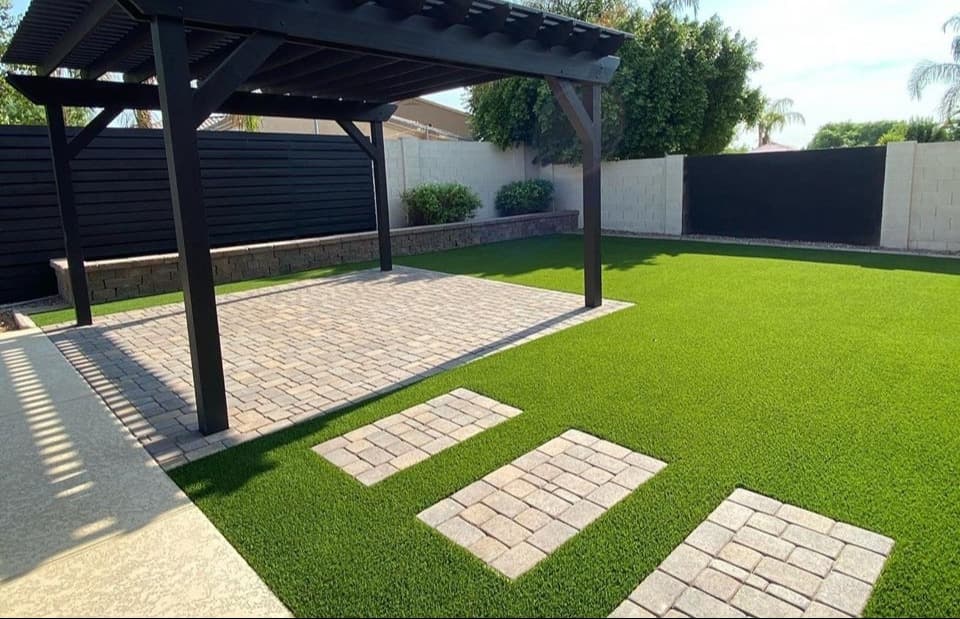
The allure of a lush, green lawn without the constant upkeep is irresistible. Artificial grass has become a popular choice for homeowners across the United States. But as you contemplate this verdant transformation, one pressing question arises: Do you need drainage under artificial grass?
Imagine walking on your pristine lawn after a heavy downpour, only to realize it’s turned into a mini-swamp. Proper drainage is crucial for maintaining the longevity and functionality of your synthetic turf. So, let us delve into why drainage is essential and how to ensure your artificial grass installation is top-notch.
Think of drainage as the lifeline of your artificial grass. Without it, water accumulates, leading to mold growth, unpleasant odors, and a mushy surface that defeats the purpose of having a maintenance-free lawn. Proper drainage ensures that rainwater or any other liquid flows away from the surface, keeping your lawn dry and resilient.
Nobody enjoys stepping onto a soggy lawn. Without effective drainage, water can pool on the surface, creating a mess and potentially damaging the turf. With proper drainage, water quickly disperses, allowing you to enjoy your lawn regardless of the weather.
Mold and mildew thrive in damp environments. Poor drainage can create the perfect breeding ground for these unwanted guests. By installing an efficient drainage system, you mitigate the risk of mold and mildew, ensuring your lawn remains safe and healthy.
There are several approaches to ensuring adequate drainage under your artificial grass. Understanding these can help you make an informed decision for your installation.
Many modern artificial grass products come with a permeable backing that allows water to seep through the turf and into the underlying base. This is akin to a sponge absorbing and dispersing water efficiently.
A well-prepared sub-base is crucial. Typically comprising crushed rock or gravel, the sub-base allows water to flow through it easily and prevents pooling on the surface. Think of it as a riverbed guiding water away from your lawn.
In areas prone to heavy rainfall or poor natural drainage, installing drainage pipes beneath the turf can be highly effective. These pipes channel excess water away from the area, much like veins carrying blood away from your heart.
Ensuring proper drainage involves several key steps:
Avoid these pitfalls to ensure your artificial grass installation is flawless:
Proper drainage is non-negotiable for artificial grass installations. It ensures your lawn remains functional, safe, and visually appealing. From choosing the right materials to meticulous site preparation, every step plays a critical role in achieving optimal drainage.
Yes, all artificial grass types need effective drainage to avoid water accumulation and potential damage.
Yes, but you’ll need to incorporate a drainage layer between the concrete and the turf to ensure water doesn’t pool on the surface.
Regular inspections, at least once a year, can help identify and rectify any issues before they become significant problems.
In summary, ensuring proper drainage under artificial grass is akin to laying a strong foundation for a building. It supports the longevity and functionality of your investment, allowing you to enjoy a beautiful lawn without the hassle of regular maintenance. By following best practices and avoiding common mistakes, you can achieve a stunning and resilient artificial lawn that stands the test of time.
For further detailed information on artificial grass installation, refer to resources provided by EPA Landscaping Guidelines. Additionally, insights from Wikipedia on Artificial Turf offer a comprehensive overview on the topic.
If you’re ready to transform your yard with artificial grass, ensure you prioritize proper drainage – your lush, evergreen lawn will thank you!


